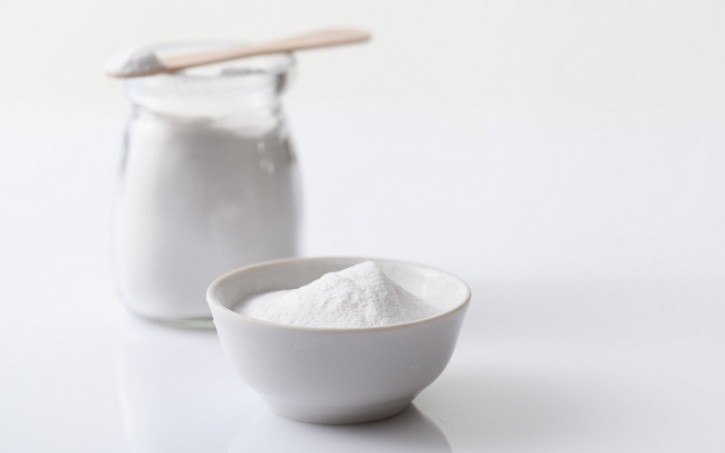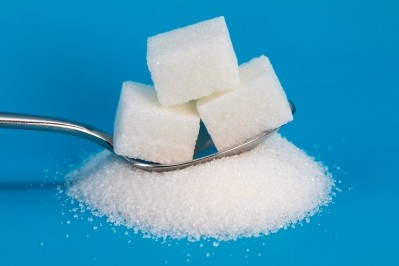“Toxicology is not a political science,” Ex-FDA official weighs-in on WHO aspartame news

"Toxicology is not a political science, and this needs to go through the proper science, and [aspartame] has. It's been under scrutiny for 40-plus years, whether it's the FDA, whether it's [The Joint FAO/WHO Expert Committee on Food Additives], and you know what? At the end of the day that's a clean bill of health," Daniel Fabricant, president and CEO of the Natural Products Association and former FDA official, told FoodNavigator-USA.
Sources shares IARC to list aspartame on "possibly carcinogenic to humans" list
This week, two sources familiar IARC's review of aspartame leaked to the press that the agency likely would list the popular food additive aspartame—which is an ingredient used in Diet Coke, Trident gum, workout supplements, and many other products—will be listed under its "possibly carcinogenic to humans" list.
Currently, IARC uses a four-tiered system for grading the carcinogenic nature of food and includes: carcinogenic to humans, probably carcinogenic to humans, possibly carcinogenic to humans, and not classifiable as to its carcinogenicity to humans. And at each level, the scientific research is more conclusive.
As IARC prepares its decision on aspartame, the Joint WHO and Food and Agriculture Organization's Expert Committee on Food Additives (JECFA), WHO's internal organization responsible for food additive recommendations, is conducting its own review of the ingredient. Both the JECFA and IARC decisions will be released on July 14.
But what does the science say?
While IARC has not yet officially made the decision to list the food additive as possibly carcinogenic or share its rationale for doing so, the food and beverage industry responded clearly to the potential move, following a year of increased scrutiny of natural and artificial sweeteners.
According to JECFA’s own research, a consumer would have to drink between 12-36 cans of diet soda every day to be at risk. And for those who might consume aspartame through a work-out supplement, they would need to consume much more than that in volume, Fabricant said.
“It’s a prospective analysis by IRCA, and meanwhile, the biggest regulatory agencies, and unless I’m mistaken, it's FDA, its Japan, [and] its Health Canada; it's like the biggest and brightest,” Fabricant said. “The health agencies have done toxicological analysis ... on these compounds to say, ‘Hey, here's where the challenges are today.’”
While admitting that this news will have a positive impact for his work in the natural space, Fabricant argued that ultimately the listing of ingredients as possibly carcinogenic without the proper research and a holistic assessment on its impact on human health can backfire and create a bad precedent for the entire food and beverage industry. Consumers also will see the negative headlines about aspartame and assume the worst without knowing the actual science, he added.
"I'm from the natural space; I'm happy because I think it might shine the light ... more towards stevia and more towards monk fruit, which is great. At the same time, they could be treated the same way a year down the road. And that's the problem - what's the actual scientific base to show harm?"
From the Calorie Control Council to American Beverage: Trade groups react
Trade groups from the American Beverage Association to Calorie Control Council also objected to the decision, citing a lack of science behind the safety of aspartame and how the ingredient has been thoroughly researched since the early 1980s.
The President of the Calorie Control Council, Robert Rankin, said his organization "is gravely concerned about any unsubstantiated and misleading assertions that contradict decades of science and global regulatory approvals." He added IARC doesn’t have expertise or authority to making such claims.
“IARC is not a regulatory agency, ingredient expert, or food safety authority, their sole focus is to find substances that could cause cancer, and they have classified things like aloe vera, low-frequency magnetic fields, and pickled vegetables as possibly causing cancer. Consumers want context and that is what’s missing from these misleading claims.”
The American Beverage Association also argued “IARC is not a food safety agency,” and pointed to an FDA letter to WHO saying it’s “better suited to assess any risk associated with aspartame."
“The purpose and expertise of regulatory agencies is to ensure safety over time. We welcome that. The safety of our products is the highest priority for our industry. The fact that food safety agencies worldwide, including the FDA, continue to find aspartame safe makes us confident in the safety of our products,” ABA added.







